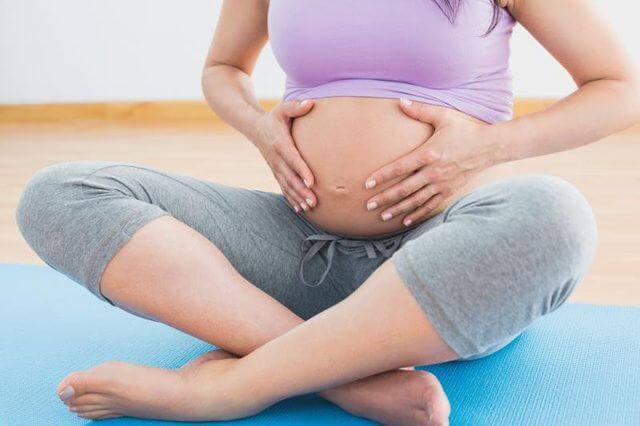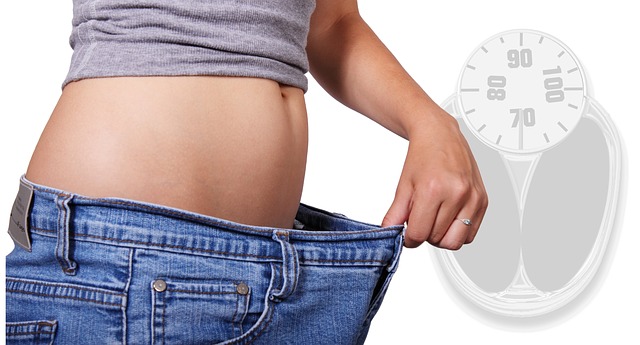Last updated: January 18, 2019 at 21:33 pm
Many women struggle with baby weight even many years after they had their babies.
On the other hand, some claim to get back to their original weight weeks after they give birth.
Losing weight after pregnancy can be a pain in the ass.
Especially when you are asking how to lose pregnancy belly.
It’s very common nowadays to hear mothers complaining that they have tried many diets.
Also, they pay attention to what they intake, but still, they can’t lose those extra pounds and get back to their original weight.
However, some have a different story.
They lose weight weeks after they give birth, they don’t diet that much.
Reasons for that can be responsibilities around the baby, not having enough time for themselves makes them even skinnier than before.
This puzzles us too and that’s why we decided to investigate and write about it.
When people find out that you are expecting they start advising you that you need to eat for two, but future moms need only about 10% more calories than before.
That’s the formula that guarantees you won’t have weight problems afterward.
You can get those extra calories for example in the morning – you can eat cereals with fruit and yogurt before your breakfast.
It’s recommended to increase your body weight during pregnancy according to your body mass index (BMI) before getting pregnant.
What is BMI?
There are 2 formulas for calculating Body Mass Index.
Metric BMI Formula
BMI = weight (kg) ÷ height2 (m2)
Imperial BMI Formula
BMI = weight (lb) ÷ height2 (in2) × 703
After calculation you can check your results in the table below:
| BMI Weight status | |
|---|---|
| Below 18.5 | Underweight |
| 25.0-29.9 | Overweight |
| 30.0-34.9 | Obese (Class I) |
| 35.0-39.9 | Obese (Class II) |
| 40.0 and higher | Extreme obesity (Class III) |
BMI is a credible estimate of body fat.
Nevertheless, BMI doesn’t directly measure your body fat, and when it comes to muscular athletes it may show they have BMI in the obese category even though they don’t have excess body fat.
People diagnosed with obesity have a body mass index (BMI) of 30 or higher.
So, if you think your BMI is too high, consult your doctor.
Pregnant women with low BMI can gain up to 10 pounds, whilst overweight women should gain 3-5 pounds during their pregnancy.
Although weight during pregnancy doesn’t come only from extra food, nutritionists recommend that pregnant women should begin their pregnancy with a normal starting weight.
According to many nutritionists, a normal starting weight is an important condition to gain the optimal number of pounds during the pregnancy and then lose them after giving birth.
Where those extra pounds come from?
Well, here is some very rough math.
The uterus weighs about 3 pounds, the placenta about 1.5 pounds.
Furthermore, the amniotic fluid about 3 pounds, increased blood volume about 3 pounds, retained water about 4,5 pounds, and fats under your skin about 3,5 pounds.
All in all, this results in about 25 pounds extra.
So, it’s completely normal to gain 25 pounds during your pregnancy.
However, some women gain much more than that and that can be a problem.
The main reason for being overweight during pregnancy is bad diet.
Pregnant women shouldn’t be on strict diets since the fetus may not get enough nutrients and therefore it won’t develop properly.
Experts are against so-called “fruit diets” or “rice diets” because they can only do harm.
Losing weight or maintaining your weight adequately requires professional supervising.
So, you mustn’t starve yourself, but you shouldn’t eat enormous amounts of food either, especially greasy, unhealthy food.
The most important advice here is to avoid sweet and sweetened food and instead to eat fresh fruit and vegetables.
You should eat a lot of wholewheat cereals, ingredients high in fibers, and ingredients like eggs, milk, meat, fish.
You should avoid eating raw fish or meat, tinned food, processed food, blue cheese in your pregnancy.
And you should try eating more steamed vegetables.
What happens after pregnancy?
Women lose 13 pounds during giving birth.
It’s good to know that all the fats that piled up during pregnancy are actually useful.
For breastfeeding, you need strength and energy, and some calories that are necessary for breastfeeding come from fat layers that your body creates.
Four months after giving birth the fat layers start disappearing naturally.
It’s a fact that everybody reacts differently.
Some women barely lose weight during breastfeeding despite their healthy diet.
Your metabolism and your hormones are key factors for this.
Some women have slower metabolism during pregnancy and breastfeeding.
So don’t blame yourself and don’t try to lose weight with exaggerate exercising right after giving birth.
You need some rest during that period, and according to many, you should start exercising 6-8 weeks after giving birth.
In addition, new moms have many obligations during that period which can be overwhelming and if you want to lose a few pounds that bother you, stay motivated, eat healthily, exercise regularly and you will get there.
However, if you struggle with obesity, no matter if it’s pre or postpregnancy you should be aware of the consequences and you should lose weight in order not to risk your health.
Overweight pregnant women suffer more from back pain and ankle pain.
Being obese during your pregnancy is one of the main risk factors that can cause premature birth and diabetes.
In some cases, obese pregnant women have the tendency to go past their due date so they have babies who are overweight and that requires giving birth by C-section.
Many studies have shown that postnatal depression occurs more often in obese pregnant women.
In addition, obesity during pregnancy increases your baby’s chances of being obese, having a metabolic disorder, increased blood pressure, and asthma later in life.
So, how to lose weight after pregnancy naturally:
- Start counting your calories
- Avoid processed foods
- Breastfeed as long as you can (if you can)
- Avoid alcohol
- Increase your physical activities (step by step)
- Stay hydrated – drink a plenty of water
- Sleep well, at least 7 hours – this is the hardest part when you have a baby 🙂
- Be persistent
Losing weight after pregnancy – bottom line?
To sum up, everybody is different and not all pregnancies are the same.
Some women have no troubles at all with their weight, whereas some can’t lose their baby weight even years after.
Our advice is to take care of your body, before, during, and after pregnancy if you want long-term results. (1)
Eat healthy ingredients, enrich your diet with fruit and vegetables and consult a nutritionist if you need one to get a diet plan.
Also, do exercises.
Physical activity will help you slim down faster and there are many different training programs.
You just need to find an appropriate one for you, one that suits your life after giving birth.
If you want results faster you can consider some food supplements or diet pills of course after your pregnancy and if you aren’t breastfeeding.
If you have any concerns, consult your doctor.
This is the time in your life when you should enjoy the most, so stay positive and persistent and you will get rid of excess weight.
READ MORE: BEST DIET SUPPLEMENTS FOR WOMEN!

Hi, I am Stacey and I am the author of beautyandhealthlife.com. I have 10+ years of experience in fitness and weight loss and I want to share my knowledge with you. I am here to help you lose weight and tone your body.





No Comments